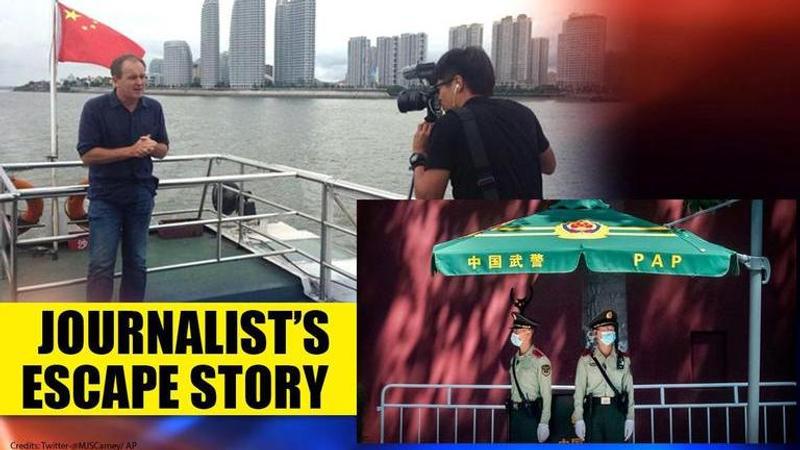Published 10:11 IST, September 22nd 2020
Colleagues now safe, journalist who fled China on a 'cold December night' narrates ordeal
An Australian reporter narrated his harrowing experience of working in China and how he and his family managed to escape after being threatened by authorities

In a chilling revelation, an Australian journalist narrated his harrowing experience of working in China and how he and his family managed to escape after being intimidated by Chinese authorities. Matthew Carney, a journalist with Australia's ABC network who worked as the channel's China chief bureau, explained in a dramatic article of his time in China where he received calls from Central Cyberspace Affairs Commission (CCAC) first in 2018 and how that marked the beginning of a series of volatile events meant to intimidate his family and 'effectively forced to leave China'.
Carney claimed the authorities with CCAC would repeatedly call him and threaten him of 'violating China's laws and regulations' and that his reporting was leading to rumours, dissemination of 'harmful information which endangered State security and damaged national pride.'
All foreign journalists under surveillance in China
Carney went on to make more explosive statements as he noted all foreign journalists in China are under surveillance. He opined State authorities started tracking him religiously after the call with CCAC. In his article to ABC, the Australian reporter explained that there are several layers of tracking and the overt intimidation and shadowing his daily activities were the kind of surveillance the Chinese government wants news reporters to know about.
Carney recollected an incident from one day where he was reporting on mass detentions of Uyghurs in Xinjiang and his team was surrounded by 20 security officials stopping them from carrying out their work impartially. That was later followed by a serious grilling by the officials late past midnight about their daily activities, he added.
In another instance of serious violation of privacy, Carney witnessed his phone and email accounts being remotely accessed and read, and he notes that the hackers on purpose left specific apps and emails open so he could see that he was being watched — a clear sign of intimidation. However, he chose not to share the story out of fear for his colleagues who were still working in Beijing, Shanghai and other border areas.
'You will be put in detention'
The Australian journalist noted that Chinese authorities first try to force foreign correspondents to "self-censor" their work and then it develops into a threat where their visas could either be revoked or not be renewed. Normally where visas take 10 days to be renewed, authorities take it as an opportunity to informally interrogate the reporter and the renewal process might take up to 6 weeks and sometimes still be rejected.
His troubles didn't end there, however, as he was constantly threatened by authorities, in one instance, he recollected how officials told his 14-year-old daughter she would be put in detention for 'spying' among other crude and plainly bogus charges
In his closing note Carney added that as pressure mounted from Chinese authorities and an imminent doom of legal actions threatened to be charged against him with bogus cases, he was advised by his expat friends and lawyers to flee the country before a trial could commence as China could impose an exit ban on him and his family. Fearing his life, he had left the country as soon as he could with his family.
'...But boarding the plane for a night flight back to Sydney with my family on a cold December night had never felt so good,' he concluded.
(with agency inputs)
Image credits: Twitter / @MJSCarney
Updated 10:46 IST, September 22nd 2020




